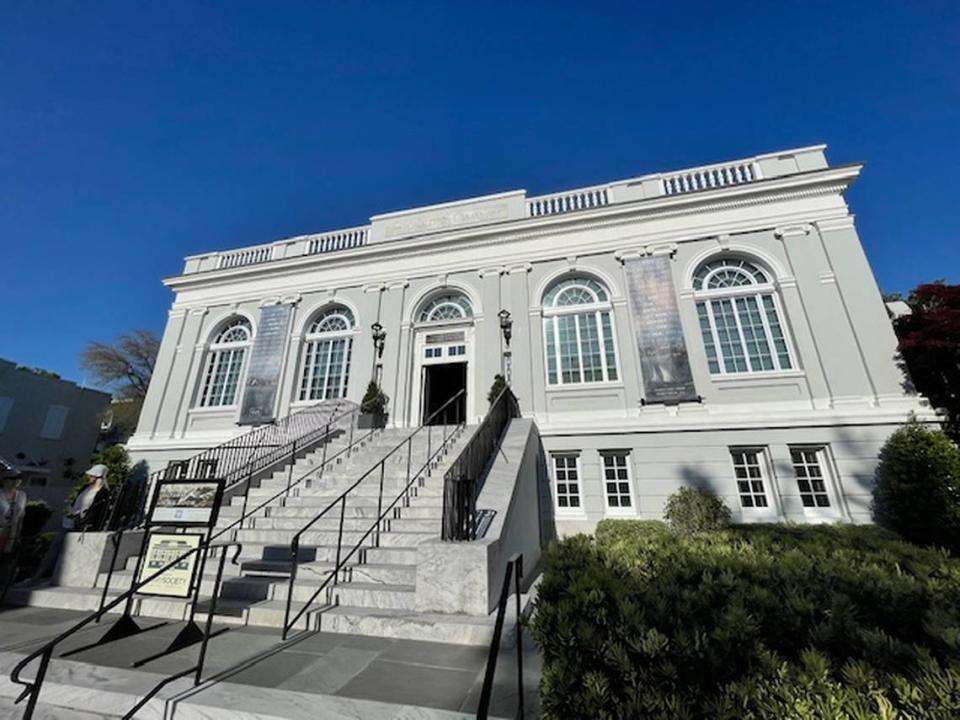Crime novelist Don Winslow just made the most poignant case for saving libraries | Opinion
It was a lovely, warm, breezy April night in Charleston, the kind that helps explain why so many people call it their favorite U.S. city and why more Americans move to South Carolina than to any other state. Crime novelist Don Winslow stood inside the Charleston Library Society to read from and sign copies of his latest book, “City in Ruins,” set a world away in the far less charming Las Vegas. Dozens of readers hung on Winslow’s every word inside a space billed as the South’s oldest cultural institution and the nation’s second-oldest circulating library. It was a meeting of the minds in a country where that’s rare everywhere now given our deep political fault lines.
You’re at fault! No, you’re at fault! Such finger pointing wasn’t on display Tuesday, though there was one question about Winslow’s political activism, which he sidestepped, saying, “I don’t want to make the evening overly political.” In his 16th stop in 23 days, Winslow, known on X for tweets criticizing the former president, talked about writing books instead.
He read from his crime saga and fed our minds, but first he made a point that shouldn’t be political in a place with such appeal to liberals and conservatives alike.
“Can we just think about libraries for a second and what a revolutionary idea they were? Prior to this, prior to these,” said Winslow, gesturing to the cavernous room and crowded shelves, “knowledge was only in the hands of the wealthy, only in the hands of the wealthy. And then some genius had the idea, can we create buildings, a free lending library, where everybody could come and have access to information and access to knowledge? And I think that libraries have made such a contribution to democracy because anybody could walk in off the street and read a newspaper, anybody could come in and read ‘On The Origin of Species,’ or whatever it happened to be, without having to have the money to buy those things or to have their own library at home.”

Put another way: You don’t need money — or even a home — to use a library. You just need to be curious and to wander through the door of a setting that is part equalizer, part safe haven, part knowledge factory and, now, part political football.
Does Winslow know that South Carolina banned more books last year than all but four other states or that the South Carolina State Library severed ties with the American Library Association over a disagreement? That county library boards have become such battlegrounds here or that the Beaufort County School District made “60 Minutes” just last month after its review of 97 nearly banned books ended with 92 back on shelves? Maybe so, but he was here to make a broader point on which, perhaps, we can all agree, that libraries can change everyone’s lives for the better.
Winslow talked about the library in the small Rhode Island village of Matunuck where he grew up and said, “That little library opened the world for me. I would not be standing here, I would not have become a writer, without that library.”
Decades later, as an adult living in the small rural town of Julian, Calif., outside San Diego, Winslow and others rallied around a plan to build a local library. Then a wildfire upended everything, killing people, burning homes, and threatening to destroy the entire town. “Firefighters lined up on the highway to make a last stand,” he told us, “and it started to rain, then it started to snow, and the town was saved.” A year later, the library was built.
“I sometimes think of my life as a story of two libraries,” he said. “One library in Rhode Island that let me become a writer and another library in Julian that let me know that life went on, when we thought we were going to disappear off the face of the earth. That library now is the gathering place in our very rural area.”
Libraries are literally designed to bring people together from all walks of life. They mean the world to Winslow, to so many of us, and he’s always delighted to enter one. Next time you do, walk in with an open mind and open arms. Both can fill up fast.
Send emails, 200-word letters to the editor or 650-word guest essays to me at mhall@thestate.com and say hi on X at @bymatthewthall anytime.

